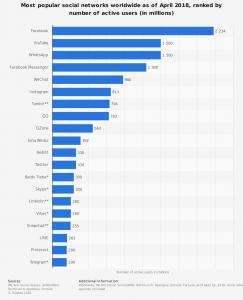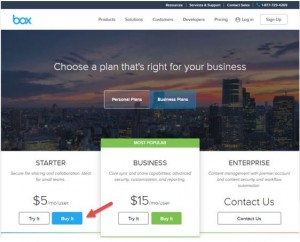Small business owners manage everything in their company, from payroll to business development. As business as a whole continues to evolve, now is the time for small businesses to take the dive into digital marketing. While print marketing is still a vital part of a marketing strategy, smart business owners will amplify and augment their traditional marketing efforts with digital to grow in the future. Digital marketing gives micro businesses ways to expand their audience without depleting their bank accounts.
What Exactly is Digital Marketing?
This is the real question: what is digital marketing? To easily summarize this broad business topic, digital marketing can be defined as,
“A term used to describe integrated marketing services used to attract, engage and convert customers online,” according to Top Rank Marketing.
Essentially, digital marketing is the online version of print marketing. With so much business being done online, from initial customer research to sales, digital marketing has established itself as an integral part of any business. Online marketing allows small businesses to expand their reach and connect with audiences beyond their local realm, and often for a fraction of the cost of print advertising. Most small businesses already use at least one digital marketing tool, most likely a mobile optimized website, so why not include a more dynamic digital marketing strategy to increase awareness and profits?
Advantages of Digital Marketing for Small and Micro Businesses
Before a small business integrates any new tools into its playbook, understanding the inherent benefits of online marketing is the logical first step. Knowing what can be gained by the investment of time and resources allows a micro business to make an educated decision about which digital marketing components align with its overall business strategy.
Drives traffic
One of the top priorities for small businesses is to drive traffic to their website. Digital marketing provides a plethora of options for reaching target audiences. It’s a fact that consumers are online more than ever, and when a small business can effectively broadcast its message through online marketing, across various channels and platforms, it can engage potential customers and drive website traffic. Consumer traffic goes beyond website clicks, too. It encompasses open rates on emails directing users to specific landing pages or following a business on social media. All of these tactics are ways to connect with customers and improve their awareness and likelihood of purchasing products and services. By simply employing a few, select online marketing strategies, small business traffic can skyrocket.
Allows for highly targeted audiences
A major benefit of using social media and email marketing campaigns is that they house custom insights and metrics. Through this data, businesses can tailor their specific audiences in any way they please. Micro businesses can get nitty gritty and drill down into the information to find out who their target consumer is, their buying habits, demographic information, and a host of other variables. By understanding what the ideal customer wants, a business can successfully and efficiently influence and connect with the right people, thus saving time and money.
Can be very affordable
Online marketing is a fantastic way for small businesses to showcase their brand and product offerings without breaking the bank. Digital marketing is a way to even the playing field between big businesses and micro businesses. As mentioned above, social media marketing and email marketing services include user-specific insights and data, and 90% of the time it comes at no cost to the business! Small businesses are constantly balancing their priorities with a tight budget, and digital marketing is a cost effective means of making the most of their investment. Capitalizing on strategic social media tactics and a professional website can yield incredible results for small businesses. It’s a win-win.
Enables real-time customer service
More than ever, consumers expect personalized and timely attention from businesses. Digital marketing solutions give small businesses the option to respond in real time and give the high touch customer experience most consumers want. It’s as simple as monitoring messages and notifications on social platforms so issues can be resolved quickly and handled with a branded tone of voice. Responsiveness and courtesy go a long way in building lasting customer relationships.
Beyond replying to problems, social media marketing gives small businesses a platform for proactive communication and creating authentic dialogues with their audiences. Establishing a brand voice and human tone on social media plays an important role in enrolling long-term customers. These efforts take minutes per day, but yield massive payoffs with brand loyalty and customer lifetime value.
Demonstrates clear ROI
As was said before, websites, social media, and email platforms have integrated insights and data management systems to help small businesses assess and evaluate their campaigns. By clearly outlining objectives for specific campaigns, businesses can rate the ROI, or return on investment, quickly and make educated changes to future campaigns. Many components of business are intangible and hard to measure; online marketing makes it easy to understand ROI and inform upcoming initiatives to maximize marketing efforts.
Can be automated
Last, but certainly not least, many digital marketing services can be automated! This means small businesses can schedule social media posts, blog posts, and email campaigns to maximize the return on time spent. A robust social media presence takes effort, but by bulk scheduling posts, small businesses can save hours per week, and focus on other priorities. The same goes for email campaigns. Designing the email, writing copy, and selecting the correct audience can take a large chunk of time, when done in non-systematic way. However, with an email service, small business can create template email formats, quickly plug in compelling text, and choose saved audience distribution lists to set and forget their email marketing.
Time is the most precious resource for micro businesses. Using digital marketing services not only saves time and money, but also produces more engagement, satisfaction, and revenue long-term.
Digital Marketing Strategies
When a small business is ready to jump on the digital marketing wagon, it should include these five baseline online marketing components. A thoughtfully-crafted combination of the following elements gives small businesses the tools necessary to compete in their marketplace and grow over time.
Responsive, mobile-friendly website
A website is a small business’s first impression for many of its customers. Having a responsive and mobile optimized website that looks professional is the first step in establishing a digital marketing strategy. A website should complement a business’s existing brand standards and other marketing materials. Integrating logos, preferred fonts and color palettes are important pieces of creating an authentic and trustworthy website.
When creating a business website, remember the objective: to promote awareness and convert visitors to customers. Give viewers everything they want from contact information to product and service descriptions to social media widgets, and a charming ‘About Us’ section. All of these pieces put together yield great marketing ROI and conversions.
Active social media presence
Unsurprisingly, social media marketing is another major element of a digital marketing strategy. Before signing up for every social media platform, it’s necessary to understand where a business’s target audience is most active. Create profiles on those platforms and establish an active social media presence on one or two platforms at a time. Set a consistent posting schedule, so followers come to expect and anticipate new posts on specific days of the week and recurring times.
Managing a business’s social media presence takes forethought and planning. It is helpful to use an editorial calendar to track posting frequency, content and topic types. Consumers seek out valuable information and behind the scenes glimpses of businesses on social media. Incorporate these themes into your social media strategy in order to grow followers and website traffic.
Email marketing
Despite social media’s rise in popularity, email marketing remains a viable and budget-friendly digital marketing option for small businesses. Businesses can create custom templates, incorporate logos, preferred fonts and colors, and are on-brand. There are innumerable reasons to send an email to a potential client or loyal customer. Email should be used to remind consumers of a business’s relevance and always provide value to the recipient. Whether the email shares about the latest product updates or industry best practices, useful information is what customer want. Utilizing email to present a branded and consistent experience helps small businesses increase awareness, recognition, and most importantly, sales.
Blog
Blogging is a highly underrated online marketing strategy for small businesses. In fact, “small businesses that blog get 126% more lead growth than those that don’t,” according to a recent Jadite Inc. survey. What small business wouldn’t want that kind of leg up on the competition? However, knowing where to start with a blog seems to be the most daunting part of actually having a business blog.
A blog provides a small business the opportunity to share content, insights, and behind the scenes tours all in one place. Think of a blog as an extension of an email marketing campaign, but where a business can be more conversational, have a varied range of topics, and engage readers more actively. Beyond the conversations that arise out of comments, the impact on SEO is tremendous. Using carefully chosen keywords within a blog improves a company’s SEO ranking and gets its content in front of the right audience. Blogging is a fun and creative digital marketing endeavor small businesses should partake in. Need help getting started? Here’s a complete checklist for starting a small business blog.
Purposeful content
The quote, “Content is king,” is a well-known phrase for a reason. Content is what draws customers in and encourages them to learn more about a brand, click to another link, or make a purchase. By incorporating content marketing into a business’s overall marketing plan, it sets the tone for specific campaigns and areas of focus. When a small business produces unique content that is actionable or useful to its target audience, it’s a win.
People remember content that is relevant to them, and get in the habit of checking a website, blog, social media profiles, or email for new and timely information. Crafting a content calendar, by week, month, or quarter can keep a business on track and fulfilling on its brand promise to its customers. Uncertain where to begin with a digital marketing plan? Read our cheat sheet for writing an effective marketing plan.
While the unknown can be nerve-wracking, with this guide, small and micro businesses are equipped to take the digital dive with their marketing efforts. Online marketing is the necessary complement to print marketing, and rounds out a small business’s marketing plan and initiatives. Just like with traditional marketing, knowing who comprises the target audience, where they hang out (i.e. social media), and what’s important to them will lead any business to success.
Business & Finance Articles on Business 2 Community(75)
Report Post






